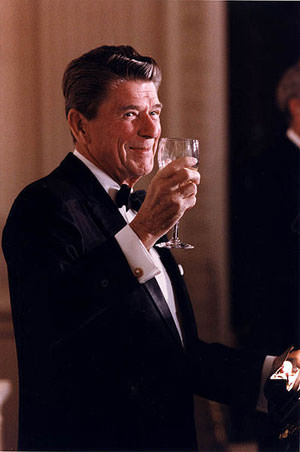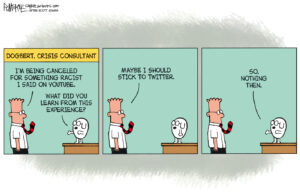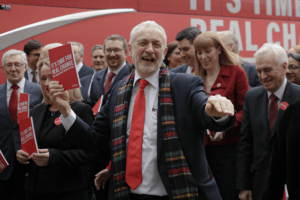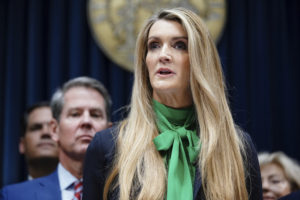The Last Reagan Campaign: Legacy
When President Reagan left office in 1981, his legacy did not seem Mount Rushmore quality.
SIMI VALLEY, Calif. — When President Reagan left office in 1981, his legacy did not seem Mount Rushmore quality. He left office with a good approval rating, more than 50 percent. People always liked him. But there was limited enthusiasm for his record in office. Many of his own ideological soul mates were disappointed with the Gipper, thinking he was a tired old man. They thought he was being manipulated by younger aides in such capers as the Iran-Contra scandal and losing the Cold War to a new, younger Soviet leader, Mikhail Gorbachev. Howard Phillips, the founder and chairman of Conservative Caucus, in 1987, called Reagan “a useful idiot for Soviet propaganda.”
And then there were liberals in journalism and the academy who never had much use for him and enjoyed repeating Clark Clifford’s sarcastic description of him as an “amiable dunce.”Unlike many of his predecessors, Richard Nixon and John Kennedy are examples, Reagan was not obsessed with his legacy or what history would say of him. Perhaps it was because he was so much older than them. He already knew what he wanted to know, he was set in his ways, stubborn, and he did not generally care what journalists or the hired help thought of him. In 1985, when one of his political staff, Edward Rollins, brought up the subject of legacy, Reagan cut him off saying, “First of all, history will probably get distorted when it is written. And I won’t be around to read it.” By the late 1990s, after Reagan announced he had Alzheimer’s disease, what was left of the 40th president’s reputation seemed to be slowly riding into the sunset along with him. Hundreds of books on the man and his administration appeared in the 1990s and after 2000. That small mountain of books, some more valuable than others, many simply adorations, did little to change historians’ view of President Reagan as an amiable ideologue who was a “great communicator.” That is a description with a negative underside: Reagan was sometimes characterized as a man speaking the words of others and dumbing down America by transforming the complexities of governance into simple one-liners.Occasionally, there were somewhat more favorable reviews of his tenure, including my own book “President Reagan: The Triumph of Imagination.” Those writers tended to conclude that Reagan was not a great president but was great at being president. Despite political differences, he was able to work with both Republicans and Democrats in Congress. He understood that words were often more important than deeds for the leader of a sprawling and diverse nation and, though many conservatives thought he was wrong, he understood the weaknesses of communism in general and the Soviet Union in particular.While participants and scholars of the Reagan years were still tapping away at their computers, The New York Times asked historian Arthur Schlesinger Jr.to re-create the Presidential Greatness Index once pioneered by his father at Harvard. In voting by 719 historians and other scholars, Reagan finished 25th of the 40 presidents, behind Rutherford B. Hayes.Conservative activists were furious. In July 1997, Policy Review, the magazine of the conservative Heritage Foundation, published an article titled, “Reagan Betrayed: Are Conservatives Fumbling His Legacy?” Some important conservatives themselves certainly thought so. Grover Norquist, the director of Americans for Tax Reform, responded to the Times survey by creating The Ronald Reagan Legacy Project, announcing a campaign to have something –an airport, a building, a road — named after Reagan in each of the United States’ more than 3,000 counties. The celebrations of Reagan’s birth 100 years ago this Sunday are part of that last campaign.It seems to be working.© 2011 UNIVERSAL UCLICK
Your support matters…Independent journalism is under threat and overshadowed by heavily funded mainstream media.
You can help level the playing field. Become a member.
Your tax-deductible contribution keeps us digging beneath the headlines to give you thought-provoking, investigative reporting and analysis that unearths what's really happening- without compromise.
Give today to support our courageous, independent journalists.






You need to be a supporter to comment.
There are currently no responses to this article.
Be the first to respond.